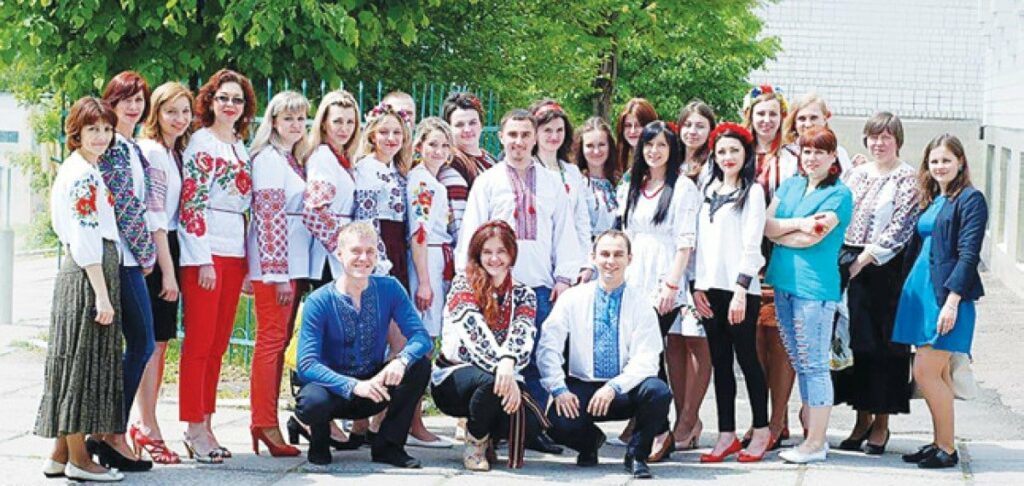
In spring, the Law of Ukraine on the organization of labor relations under martial law came into effect, defining new rules of work during the war.
Given the fact that on August 23 the Verkhovna Rada of Ukraine supported the extension of martial law in the country for 90 days, it will take quite a long time to live according to the letter of the law. We have understood the subtleties and nuances of the Law and can tell you exactly who has the right to be fired, who can work overtime and why there will be no days off on public holidays for the time being.
So, let’s begin. The Law of Ukraine on the organization of labor relations under martial law, which defines new rules of work during the war came into force on March 24, 2022 and it will be in force until the end of martial law. And this law significantly changes the current legislation.
Who is covered by the law
This law defines the peculiarities of relations between employer and employee, for the period of military operations in the country, regardless of the form of ownership, type of activity and sectoral affiliation of the organization.
Important! During the period of martial law, restrictions are imposed on constitutional rights and freedoms of man and citizen, provided for by Articles 43 and 44 of the Constitution of Ukraine.
In particular, Article 43 states that the employment of women and minors in work hazardous to their health is prohibited. According to the Law of Ukraine on the organization of labor relations under martial law, women can be engaged in harmful production. The only thing is that it is necessary to obtain voluntary consent for this. But these are already, as they say, issues of “stale bread and small pearls”.
Article 44 of the Constitution of Ukraine states that workers have the right to strike to protect their economic and social interests. Strikes are prohibited during martial law.
Employment contracts
When concluding an employment contract during the period of martial law, a condition on the probationary period of an employee when accepting a job may be established for any category of employees.
But another point is important. Namely, the one stipulated in Article 2 of this law.
In order to avoid staff shortages due to the actual absence of employees who have evacuated to another city, gone on vacation, are idle or temporarily unable to work, an employer may conclude fixed-term employment contracts with new employees during the period of martial law or the period of substitution of a temporarily absent employee.
Article 3 deals with the specifics of transferring and changing the working conditions of employees during martial law. During martial law, the employer has the right to transfer an employee to another job, not specified in the labor contract, without his/her consent (except for transfer to work in another area where active hostilities continue), if such work is not contraindicated to the employee for health reasons. Labor remuneration for the work done must be not less than the average wage for the previous job. This must be notified at the latest before such conditions are imposed.
Layoffs (vacation and sick leave are not a hindrance)
An employee may terminate the employment relationship on his/her own initiative. If the initiative comes from the employer, nuances arise again.
During martial law, an employee may be dismissed during temporary disability, during vacation, with the exception of maternity leave, maternity leave, and leave to care for a child under the age of three.
The date of termination is the first working day after the employee returns to the workplace.
But, employees of critical infrastructure facilities or those involved in socially useful events cannot resign on their own initiative. However, if the work is not related to this, it is possible to terminate the contract without a two-week notice period. And you will not have to work the two weeks’ notice.
Working day
Normal working hours during martial law may be increased to 60 hours per week for workers employed at critical infrastructure facilities.
The employer establishes a five-day or six-day working week. But the increase in working hours is paid additionally.
A significant plus: the amount of wages must also increase in proportion to the increase in working hours. And the employer sets the time and end of the working day.
Vacation
During martial law, an employee’s annual basic leave may be limited to 24 calendar days for the current working year. If more days are available, they can be used after the end of martial law.
An employer may refuse to grant unused days of annual leave to an employee.
If an employee is dismissed during martial law, he/she shall be paid monetary compensation in accordance with Article 24 of the Law of Ukraine “On Vacations”. And that is the end of it.
Moreover, during martial law, an employer may refuse to grant an employee any type of leave (except for maternity leave and leave to care for a child under the age of three) if such an employee is engaged to perform work on critical infrastructure. But it is possible to go on vacation at your own expense for an unlimited period of time.
If the employee went outside Ukraine, or received the status of UPO, then he/she gets a leave without pay. But the leave cannot be longer than 90 calendar days. And being on such leave is not included in the length of service.
Night work
During martial law, only pregnant women and women with a child under the age of one year and persons with disabilities who are contraindicated from such work by medical recommendations are not allowed to work at night without consent. The rest are welcome.
Harmful work
During the period of martial law it is allowed to use women’s labor with their consent in heavy work and work with harmful or hazardous working conditions, as well as in underground work. At the same time, workers may be involved in preventing or eliminating the consequences of hostilities.
Labor remuneration
Payment for work must be made in accordance with the employment contract and the employer must do everything possible and in his power to realize this.
The employer is exempted from liability for breach of the obligation to pay wages if he proves that the breach occurred as a result of hostilities or other force majeure circumstances.
However, this does not release him from the obligation to pay wages, but simply allows him to move the deadlines. If neither the company nor the employee can continue working, the guarantee payments and wage reimbursements will be made by means of reparations from the Russian Federation.
You can read the law in the original here



